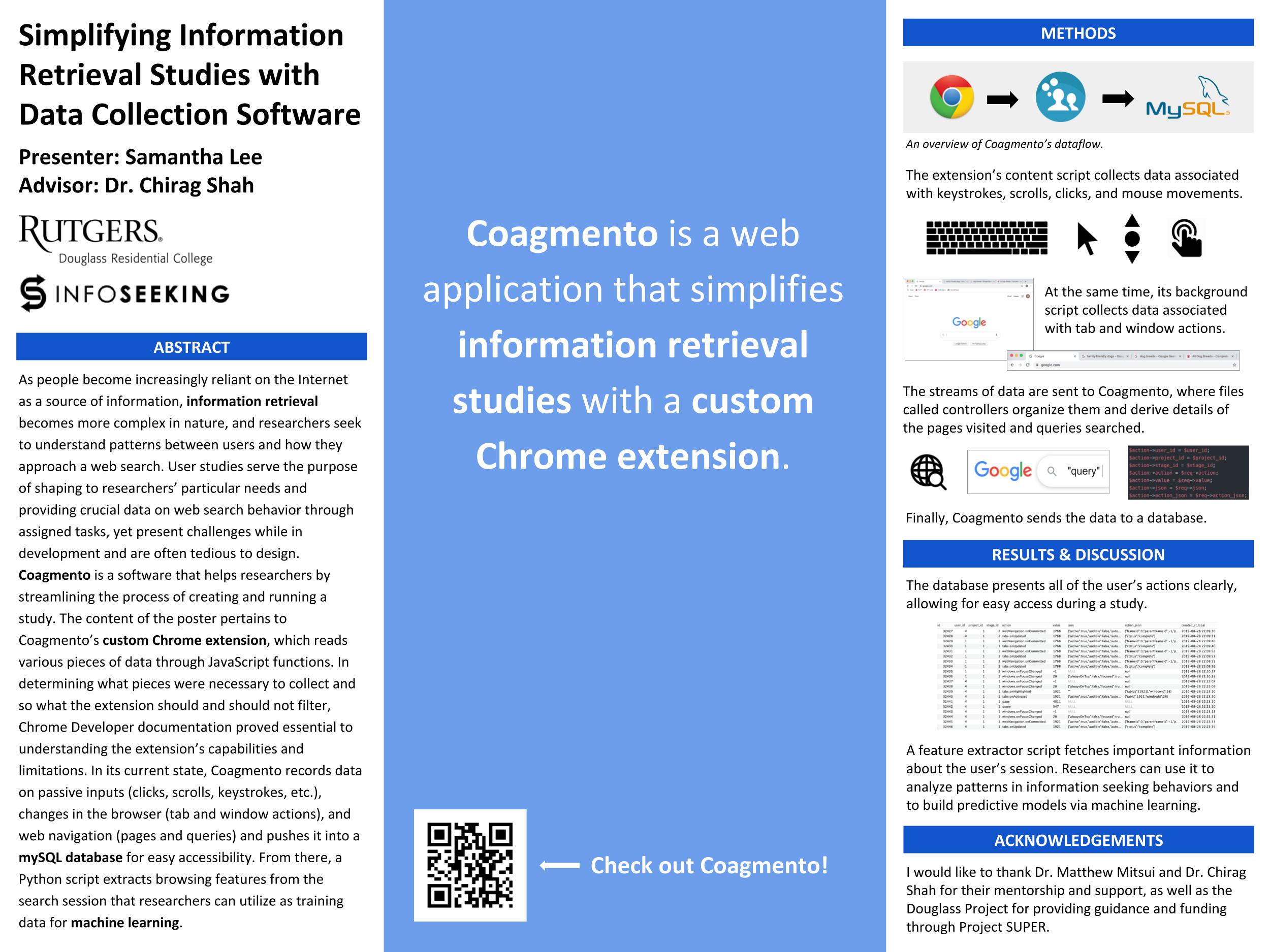Research Assistant
2019-01 – 2019-10data science
research
data science
research
Background
As people become increasingly reliant on the Internet as a source of information, information retrieval – understood here as the science of searching for information – becomes more complex in nature, and researchers seek to understand patterns between users and how they approach a web search. User studies serve the purpose of shaping to researchers’ particular needs and providing crucial data on web search behavior through specific tasks assigned by the person conducting the study, yet present challenges while in development and are often tedious to design.
My Work
Coagmento is a software that helps researchers by streamlining the process of creating and running a study. I worked on its custom Chrome extension, which reads various pieces of data through JavaScript functions. In determining what pieces were necessary to collect and so what the extension should and should not filter, Chrome Developer documentation proved essential to understanding the extension’s capabilities and limitations. In its current state, Coagmento records data on passive inputs (clicks, scrolls, keystrokes, etc.), changes in the browser (tab and window actions), and web navigation (pages and queries) and pushes it into a mySQL database for easy accessibility. From there, a Python script extracts browsing features from the search session that researchers can utilize as training data for machine learning.
Reflections
Although I'd been a part of InfoSeeking for many months, my time there during the summer was the most memorable. Working on Coagmento was my first formal technical experience – it was my first taste of agile development, it was the first time my efforts had a direct impact on the people around me. I'm proud of having been able to pick up skills and languages I'd never before used, and I am more so grateful for the support I received through Douglass Residential College and the mentorship of Dr. Matthew Mitsui and Dr. Chirag Shah.
